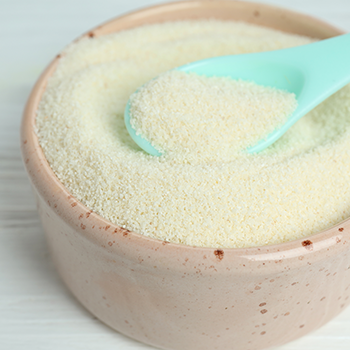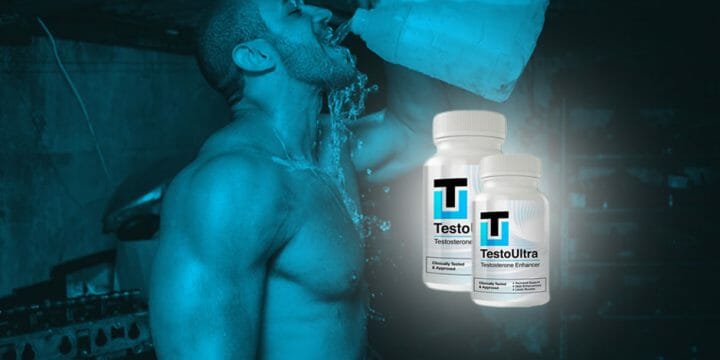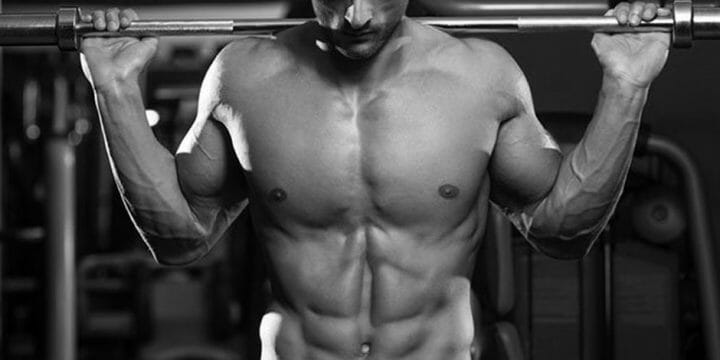As with all supplement products, there are right and wrong reasons to take them. One of the oldest debates that amateur athletes and bodybuilders often face is whether to prioritize test boosters or creatine.
Now, if you have measured low testosterone levels, then a T-booster will be essential. But there are good reasons not to rule out creatine.
To help you better understand how these products might help your fitness journey, I had a certified nutritionist explain what you can expect.
Here’s what we found.
Quick Summary
- Choosing between testosterone boosters and creatine depends on individual fitness goals and current testosterone levels.
- Creatine is widely recognized for its immediate impact on muscle mass and workout intensity, while testosterone boosters may offer a gradual increase in exercise stamina.
- Creatine supplementation has been shown to enhance performance in high-intensity, short-duration exercises by 7.5%, outperforming placebo improvements by 3.2%.
- Personally, I've seen creatine work wonders for high-intensity training days, and when T-levels are balanced, combining it with a testosterone booster can be incredibly effective for overall fitness.
What Do Testosterone Boosters And Creatine Have In Common?
Testosterone boosters and creatine share several common ways in which they can influence your body, including enhancing exercise performance, promoting muscle growth, and providing a mental energy boost.
- Exercise performance - I've always used creatine monohydrate in pre-workouts, from soccer to MMA. A 2017 Journal of the International Society of Sports Nutrition review confirms it boosts stamina [1]. Testosterone boosters similarly increase energy after a few weeks.
- Muscle growth - T-levels send growth signals to muscles, and creatine is vital for muscle protein synthesis. A 2021 Nutrients journal study shows creatine and testosterone boosters not only aid muscle gain but also improve sleep and recovery, vital for post-workout repair [2].
- Mental energy boost - T-boosters and creatine enhance cognitive focus, trials reveal [3]. Research in the Amino Acids journal highlights creatine's neuroprotective effects [4]. Their slightly different effects may synergize for better brain function.
“Creatine is a chemical that is found in the body. It is found mostly in muscles but also in the brain. It is also found in foods such as red meat and seafood.”
- WebMD.com
Is Creatine Better For More Muscle Growth?

Creatine supplementation is better for muscle growth, especially in the short term, by enhancing workout performance and aiding in recovery. When you regularly take it before a workout, then it could allow you to lift heavier weights.
It also aids recovery, especially with a BCAA supplement.
High doses of the right amino acids enhance protein synthesis. But, low T-levels might hinder this. Adding a T-booster could elevate your strength and fitness game.
Do Testosterone Boosters Give A Better Performance Boost?
Testosterone boosters don't provide an immediate performance boost like creatine or medical testosterone treatment but can improve stamina and athletic performance over time.
Over time, T-boosters may increase stamina, especially for those with low initial T-levels, unlike immediate medical treatments, says a 2011 European Journal of Endocrinology study [5].
For a big strength surge, sex hormones need a sudden spike, achievable with medical testosterone treatment.
Still, gradually increasing muscle strength, endurance, and sexual drive is beneficial. Plus, T-boosters raise T-levels and balance hormones like cortisol and estrogen, vital for top athletic performance [6].
Should You Choose One Over The Other?

The choice between testosterone boosters and creatine depends on your specific goals and T-levels, with a focus on optimizing testosterone for effective creatine supplementation.
Once T-levels are normal, combining testosterone boosters with creatine works well, especially for muscle-building weightlifting phases.
From my high-stakes training experience, creatine is vital for high-intensity days, supported by research and athlete coaching experience.
A meta-analysis in the International Journal of Sport Nutrition and Exercise Metabolism indicates creatine improves short-duration, high-intensity exercise by 7.5%, more than the 4.3% placebo effect [7].
Generally, taking both can maximize workout benefits in stamina and strength. But, get your T-levels in check first for the best training and recovery results.
FAQs
Does Creatine Give You Testosterone?
No, creatine doesn’t directly give you more testosterone. It may help you improve how hard and effective you can work in your training sessions. And that might give you a natural boost in T-levels.
Does Creatine Shrink Your Balls?
No, creatine doesn’t shrink your balls. This is a potential side effect of taking medical anabolic steroids; science has not shown any link between testicle size and creatine.
References:
- https://jissn.biomedcentral.com/articles/10.1186/s12970-017-0173-z
- https://pubmed.ncbi.nlm.nih.gov/34199588/
- https://www.ncbi.nlm.nih.gov/pmc/articles/PMC6093191/
- https://pubmed.ncbi.nlm.nih.gov/21448659/
- https://www.ncbi.nlm.nih.gov/pmc/articles/PMC3188848/
- https://www.ncbi.nlm.nih.gov/pmc/articles/PMC5870326/
- https://pubmed.ncbi.nlm.nih.gov/12945830/
About The Author
You May Also Like






